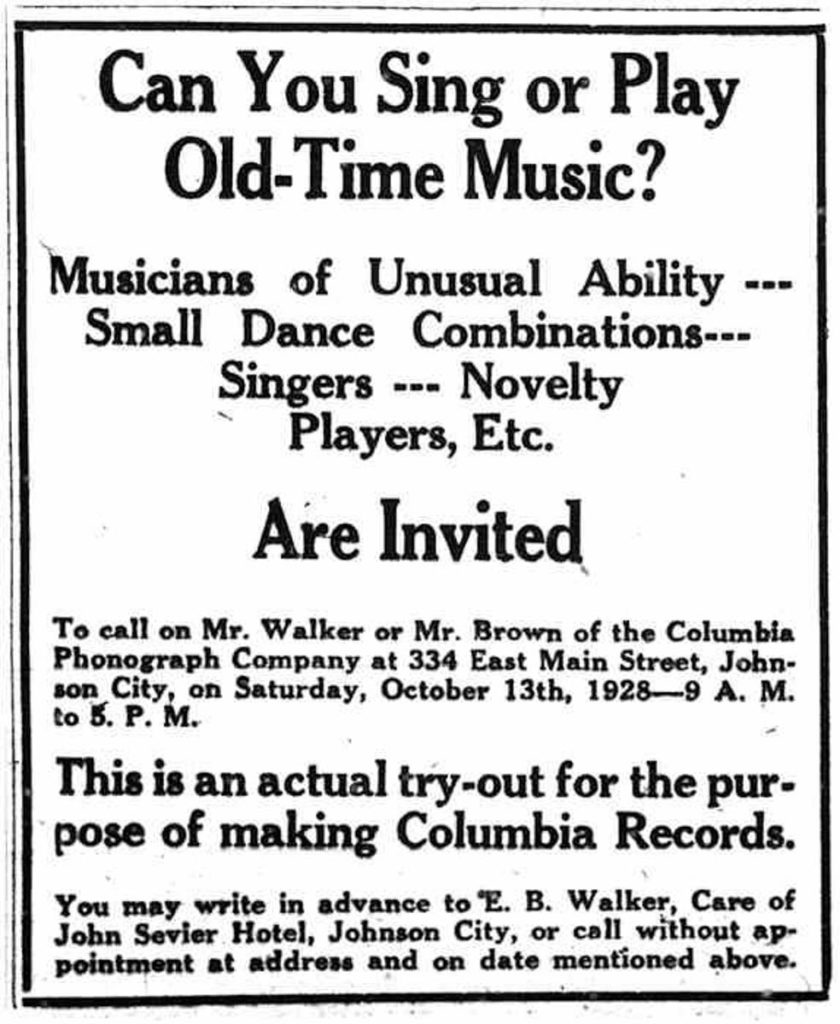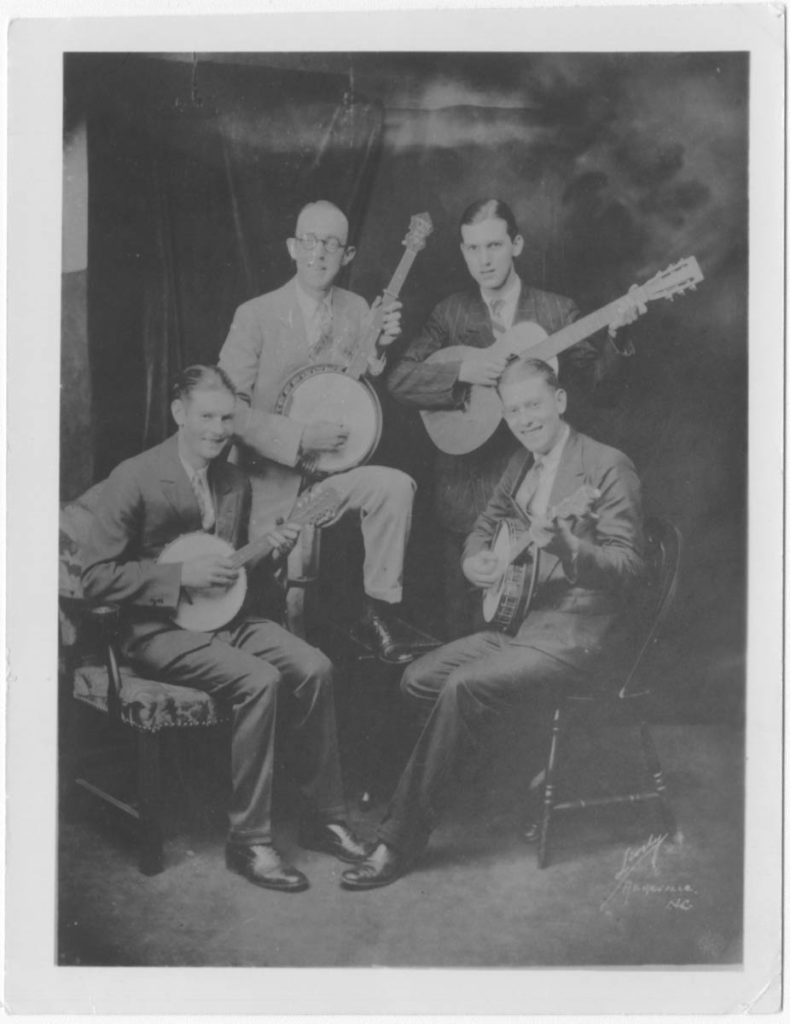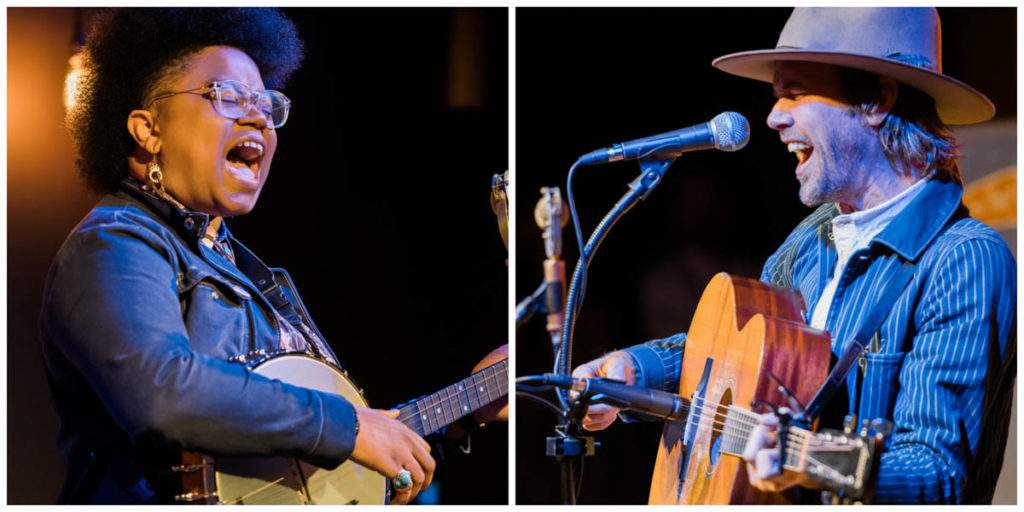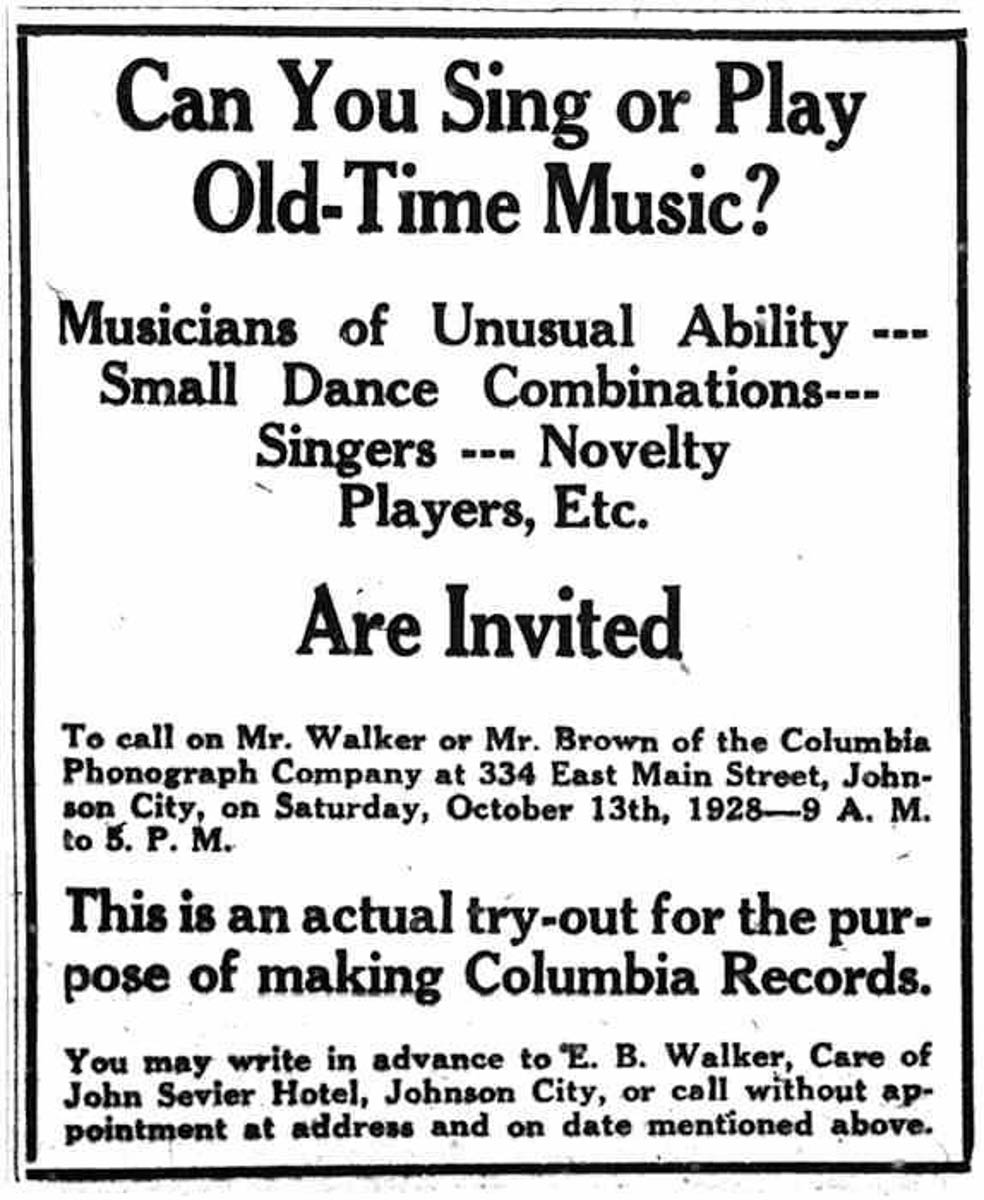“Can you sing or play old-time music?”
This question was asked by Columbia Records in an advertisement in the Johnson City Chronicle on Wednesday October 3, 1928. That advertisement, seeking musicians specializing in regional old-time music, ran in various papers in Johnson City in anticipation of recording sessions spearheaded by visionary producer Frank Walker and now known as the Johnson City Sessions of 1928–29. Though more obscure than the famed Bristol Sessions that took place a year prior, the Johnson City Sessions, only 25 miles down the road, illustrate a more diverse and possibly equally important catalog of music that continues to have a significant impact on folk and roots musicians to this day.

Ted Olson, writer and researcher of the Johnson City Sessions Bear Family 4 CD boxset, notes:
“The Johnson City Sessions were one of several significant location recording sessions conducted by commercial recording companies in Appalachia during the 1920s and 1930s. But the Johnson City recordings were unique. More than those from the other rival sessions of that era, they documented the broad sweep of the Appalachian song and tune repertoire, from the traditional to the contemporary, from the familiar to the obscure, and from the serious to the silly. While some of the recordings made in Johnson City during 1928 and 1929 were in the country music mainstream, other recordings stood out as truly unusual, even avant grade, anticipating future directions for as-yet-unborn music genres such as bluegrass, revivalistic folk, rock ‘n’ roll, and Americana. And looking back at those sessions 90 years later, one can’t help but wonder if country music might have taken a different course had the Great Depression not obliterated the distribution and potential influence of those exuberant, truth-telling Johnson City recordings. People in the 1930s depended upon art – and particularly music – to guide them out of the Depression, and the Johnson City recordings could have helped set a higher standard for relevancy in country music moving forward.”
Some of the songs recorded during these sessions have become standards in old-time repertoire including “Tell It to Me,” a riotous tune from the Grant Brothers who a year prior recorded in Bristol as the Tenneva Ramblers, or “The Coo Coo Bird” from the great Clarence Ashley, an artist whose music career was rejuvenated during the folk revival. “Old Lady and the Devil,” by Bill and Belle Reed, later found a home on Harry Smith’s Anthology of American Folk Music, a collection that would influence countless folk musicians including a young Bob Dylan.

This impact is being celebrated in downtown Johnson City on Saturday, October 19, during an all-day event to mark the 90th anniversary of these sessions. The event will feature leading folk and roots artists, including Dom Flemons, Willie Watson, Amythyst Kiah, Bill and the Belles, Nora Brown, The Brother Boys, and many more. Roy Andrade, Associate Professor and head of the Old-Time Program at East Tennessee State University, notes that “the 90th anniversary of the Johnson City Sessions is exciting for those of us involved in old-time music in this town – the music is still very much alive here and the celebration will help us remember that the story is still being written.” And featured artist Amythyst Kiah says that the celebration is timely in that “the Johnson City Sessions is a celebration of the roots of American music and the preservation of a musical legacy that has captured the imagination of people all over the world.”

We invite you to be a part of this legacy by joining us at the Johnson City Sessions anniversary event on October 19 from 11:00am to 10:00pm – the event is free and open to the public! Radio Bristol will broadcast live from the Main Stage throughout the day, and you can also tune in here. Other activities include a square dance, children’s stage, vendors, and a record fair. Also of note, in celebration of the 90th anniversary, Bear Family Records has released a CD with 26 tracks from the sessions: Tell It To Me: Revisiting the Johnson City Sessions, 1928–1929.


